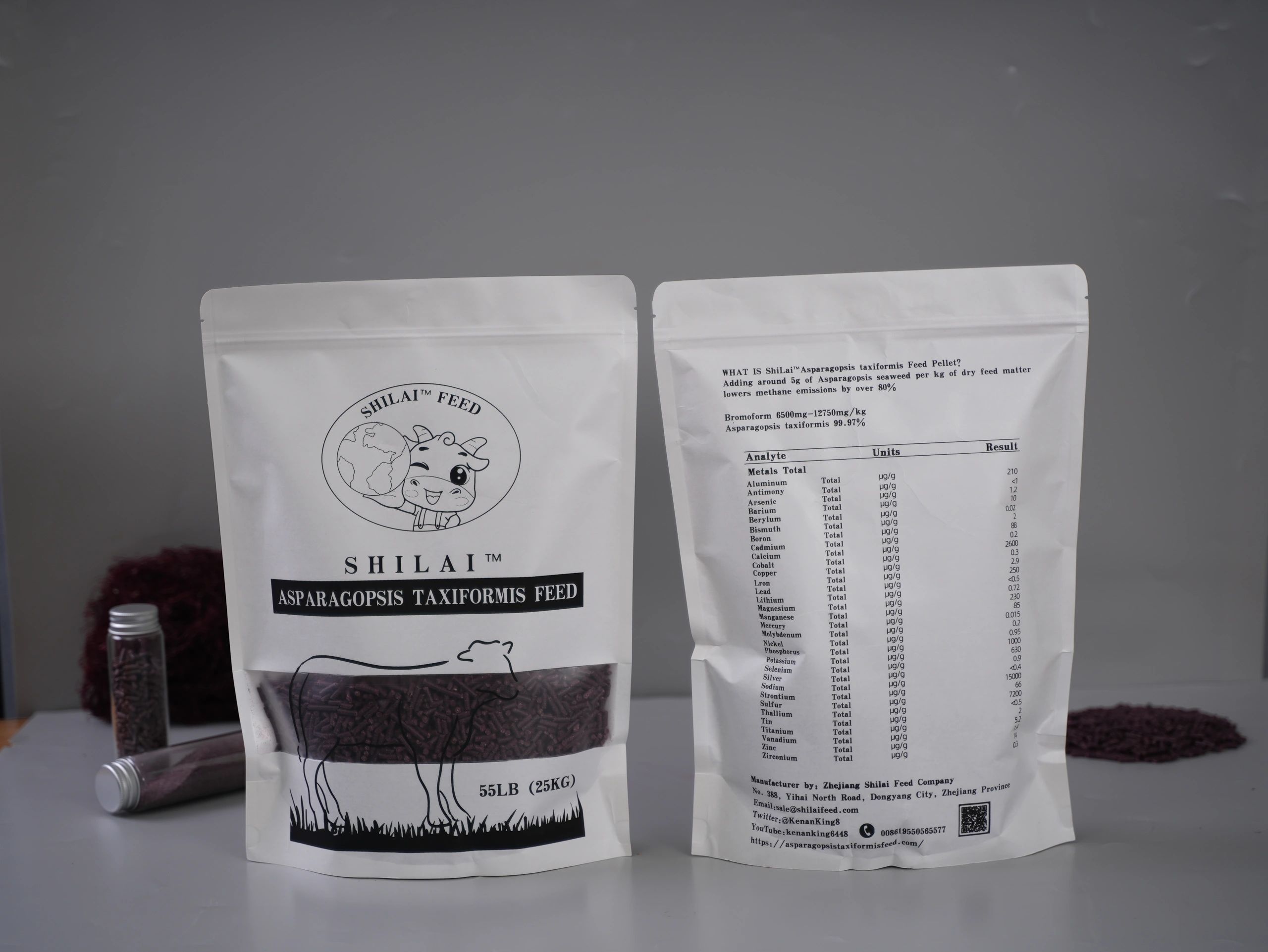
Global food production systems generate a considerable amount of greenhouse gases, chiefly from livestock rearing.
Methane is an especially potent greenhouse gas with a greater climate forcing effect than CO2, raising major concerns.
The red seaweed Asparagopsis taxiformis is under study for its capacity to reduce methane emissions from livestock digestion.
A unique chemical in the seaweed interferes with rumen methanogens, resulting in measurable decreases in methane production.
Integrating Asparagopsis taxiformis into livestock feed has yielded encouraging outcomes in early trials, pointing to a practical route for cutting agricultural greenhouse gases.
- The seaweed further supplies a set of advantageous outcomes that extend past methane mitigation.
- Improved animal health and well-being
- Prospects for sustainable blue-economy enterprises and added rural income
Further investigation and trials are still needed, yet Asparagopsis taxiformis shows major promise as a sustainable emissions reducer.
Realizing the Opportunity of Asparagopsis taxiformis Powder in Animal Nutrition
The powder and extract forms of Asparagopsis taxiformis could deliver new nutritional and environmental value in feeds.
The species supplies both nutritional elements and bioactives that contribute to enhanced livestock performance.
Including A. taxiformis powder in diets has demonstrated methane-reducing effects in trials and can deliver essential dietary elements.
Additional controlled studies are essential to determine ideal inclusion rates, processing methods, and safety for scale-up.
Asparagopsis taxiformis: Driving New Models of Sustainable Livestock Production
Asparagopsis taxiformis is becoming notable as an option to confront the environmental issues driven by common animal agriculture practices.
Adoption of the algae in feed could enable measurable reductions in methane and a smaller ecological footprint for farms.
Beyond emissions, studies indicate Asparagopsis may also improve animal health and productivity metrics in some contexts.
Large-scale implementation and chronic impact assessment remain to be proven, yet preliminary results are highly encouraging.
Mitigating Methane Emissions with Asparagopsis in Animal Diets
Scientists identify Asparagopsis as a credible method to reduce methane generation within the rumen of ruminants.
The seaweed’s effect stems from its ability to inhibit methanogenesis, the microbial process that creates methane in the rumen.
- Published experiments indicate that Asparagopsis supplementation can substantially lower methane emissions in ruminants.
- Incorporating Asparagopsis into rations is an environmentally sound method for methane abatement.
- Farming operations are starting pilot projects to assess the adoption of Asparagopsis in feeds.
Asparagopsis: The Marine Ingredient Shaping Sustainable Livestock Systems
A promising marine-derived solution has appeared, with Asparagopsis taxiformis capable of cutting methane in ruminants.
- Experimental feeding of Asparagopsis yielded large methane reductions, suggesting important environmental gains.
- This breakthrough could help reconcile food production with sustainability by lowering emissions while supporting nutrition needs.
As climate strategies evolve, Asparagopsis emerges as a distinctive, implementable solution for cutting livestock methane.
Optimizing Feed Formulations with Asparagopsis taxiformis for Greater Methane Cuts
Work is underway to determine optimal processing methods and inclusion rates to enhance A. taxiformis effectiveness.
The Science Behind Asparagopsis taxiformis's Methane-Lowering Effects
The observed methane reduction results from the seaweed’s compounds that hinder the growth and function of methanogenic microbes.
The seaweed’s methane reduction is associated with bromoform compounds, which are under active investigation for mechanisms and risk assessment.
Formulating Feeds with Asparagopsis to Support Sustainable Agriculture
Asparagopsis’s nutritional and functional traits position it as a compelling feed ingredient for greener farming.
Using the algae in diets can boost nutrient supply, aid digestive function, and impart beneficial antimicrobial attributes.
Harnessing Asparagopsis taxiformis for a Cleaner Food System
Asparagopsis taxiformis offers a natural pathway to mitigate climate impacts associated with livestock and contribute to sustainable food systems.
- Additionally, Asparagopsis contains vitamins and compounds that enrich feed nutritional content.
- Scientists and industry experts are actively exploring its uses across aquaculture, agriculture, and food production sectors.
Mainstreaming Asparagopsis use has the potential to achieve measurable reductions in the environmental effects of livestock agriculture.
Animal Health and Productivity Gains from Asparagopsis Feed Inclusion
Asparagopsis shows promise as a multifunctional feed additive that supports emissions reduction and animal performance.
Asparagopsis supplementation has been linked to higher nutrient absorption and feed efficiency, benefitting weight and health.
Functional benefits like antioxidant and immune-support properties may accompany Asparagopsis use, reinforcing animal health.
Increasing focus on sustainable production makes Asparagopsis a compelling candidate as evidence and supply chains mature.
A Sustainable Trajectory: Methane-Cut Feeds Based on Asparagopsis
As the agricultural sector seeks pathways to emissions reduction, Asparagopsis stands out as an implementable methane mitigation measure.
- Studies attribute the methane decline to interference with methanogenic microbes by compounds present in the seaweed.
- Studies and trials consistently report significant methane reductions from Asparagopsis inclusion under controlled conditions.
Adopting this approach may offer a twofold benefit: greener feed and a pathway to transform agricultural emissions performance.